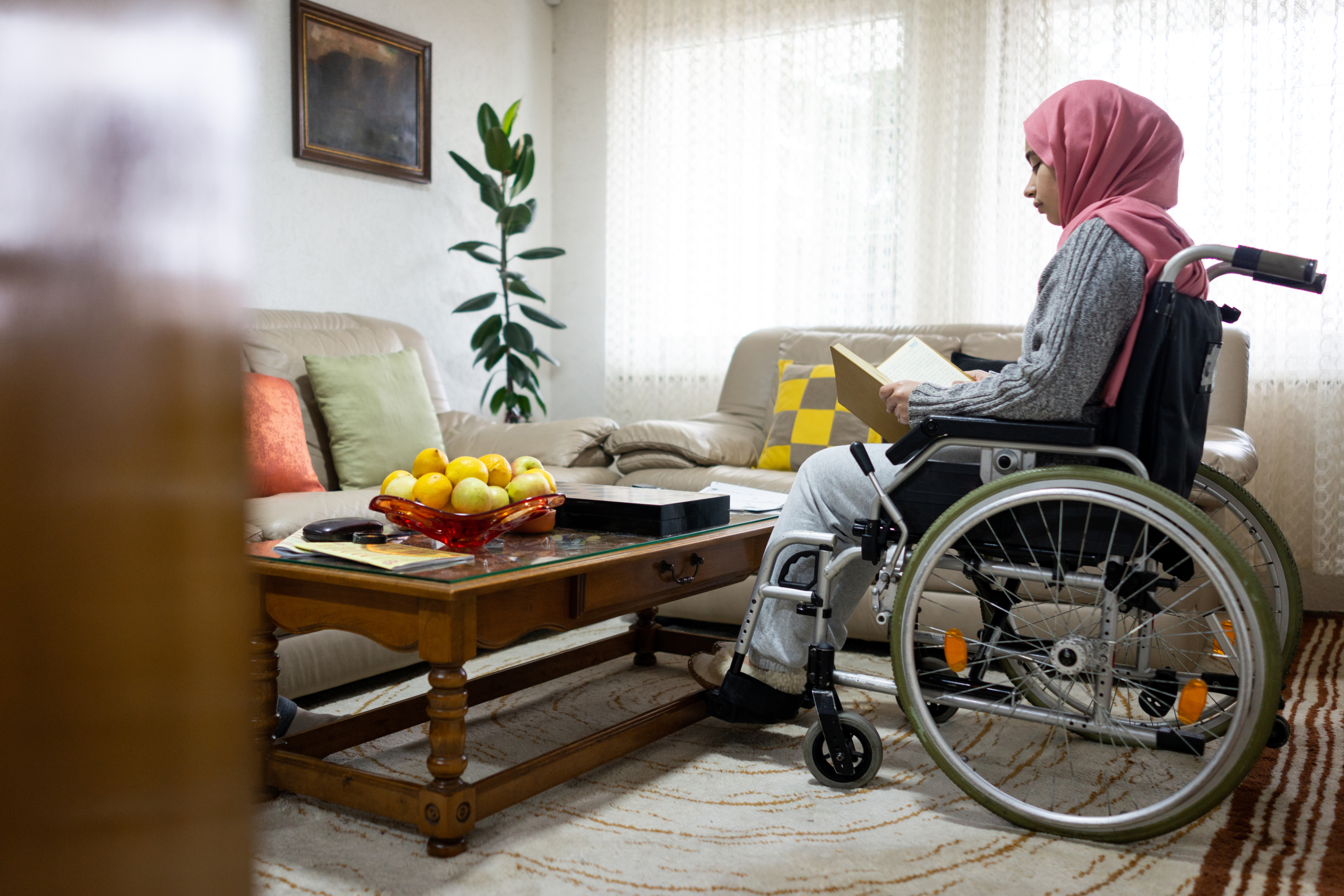How Do the Quran and Sunna Uplift and Guide Disabled Individuals?
Shafi'i Fiqh
Answered by Shaykh Irshaad Sedick
Question
How can verses like [al-Mulk 67:2] help those who are disabled? Is it fair for us to suffer without receiving any benefit while healthy people are reminded to be grateful? How can we find gratitude in our suffering?
Answer
Dear sister, may peace and blessings be upon you. I understand that living with a disability can be challenging, and it’s natural to have questions and doubts. However, the Quran and Sunna offer profound guidance and solace for those facing hardships, including disabilities. Let us explore key verses and hadith that emphasise the importance of faith, patience, and the eternal reward for those who persevere.
The Divine Wisdom Behind Disabilities
Allah (Most High) has created everything with a purpose and divine wisdom. Although it may be challenging to comprehend, disabilities are a part of this intricate creation. In Surah Al-Mulk (67:2), Allah says, “It is He who created death and life to test you [as to] which of you is best in deed.” This verse reminds us that life’s trials, including disabilities, serve as tests to determine our faith’s sincerity and actions.
The Concept of Ease and Hardship
The Quran assures us that with every hardship comes ease. In Surah al-Sharh [Quran, 94:5-6], Allah promises, “Surely, with hardship, comes ease. Surely, with hardship comes ease.”
This verse signifies that even though living with a disability may present difficulties, Allah provides moments of respite and comfort to alleviate our burdens. It is important to remain hopeful and seek solace in the moments of ease granted to us.
Furthermore, the verse indicates that hardship facilitates ease since, for every difficulty a believer faces, Allah expiates their sins thereby and elevates their status by Allah. Concerning this, the Prophet (Allah bless him and give him peace) said, “No fatigue, nor disease, nor sorrow, nor sadness, nor hurt, nor distress befalls a Muslim, even if it were the prick he receives from a thorn, but that Allah expiates some of his sins for that.” [Agreed Upon]
The Virtue of Patience and Perseverance
Patience is a virtue highly regarded in Islam, especially during times of trial. In Sura Al-Baqara [Quran, 2:155], Allah states, “And We will surely test you with something of fear and hunger and a loss of wealth and lives and fruits, but give good tidings to the patient.” This verse serves as a reminder that patience and perseverance during hardships, including living with a disability, are rewarded by Allah. By maintaining a positive attitude and relying on Allah’s support, you can find the strength to overcome your challenges if Allah wills.
The Status of Disabled Individuals
In a narration in Sahih Bukhari, the Prophet Muhammad (Allah bless him and give him peace) said, “Verily, Allah does not look at your appearance or wealth, but rather He looks at your hearts and actions.” This hadith emphasises that Allah judges individuals based on their faith, character, and deeds rather than their physical abilities or appearance. Therefore, your worth and value in the sight of Allah are not diminished by your disability. What truly matters is your sincerity and relationship with Him.
I pray this is of benefit and that Allah guides us all.
[Shaykh] Irshaad Sedick
Checked and Approved by Shaykh Faraz Rabbani
Shaykh Irshaad Sedick was raised in South Africa in a traditional Muslim family. He graduated from Dar al-Ulum al-Arabiyyah al-Islamiyyah in Strand, Western Cape, under the guidance of the late world-renowned scholar Shaykh Taha Karaan (Allah have mercy on him), where he taught.
Shaykh Irshaad received Ijaza from many luminaries of the Islamic world, including Shaykh Taha Karaan, Shaykh Muhammad Awama, Shaykh Muhammad Hasan Hitu, and Mawlana Abdul Hafeez Makki, among others.
He is the author of the text “The Musnad of Ahmad ibn Hanbal: A Hujjah or not?” He has been the Director of the Discover Islam Centre, and for six years, he has been the Khatib of Masjid Ar-Rashideen, Mowbray, Cape Town.
Shaykh Irshaad has fifteen years of teaching experience at some of the leading Islamic institutes in Cape Town). He is currently building an Islamic podcast, education, and media platform called ‘Isnad Academy’ and has completed his Master’s degree in the study of Islam at the University of Johannesburg. He has a keen interest in healthy Prophetic living and fitness.
